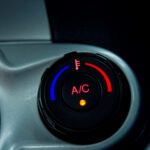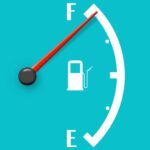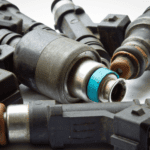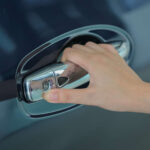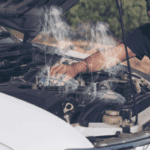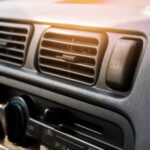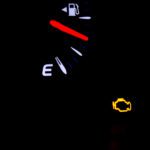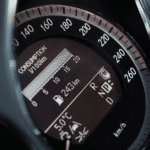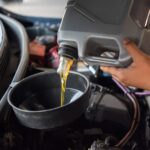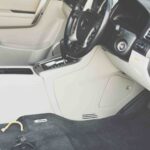It’s weird that brakes sometimes squeak when reversing only, but there is an explanation, so don’t panic. The bad news is it means that something is either worn or damaged, so the brakes need inspecting to find the problem.
6 causes of the brakes squeaking when reversing and how to fix them
Pad wear indicator catching
The pad wear indicators are metal clips usually attached to the ears of the pads. Although this signifies the pads are probably worn, unless the indicators have worked there wear loose or broken, the indicator is catching on the surface of the rotor. They squeak when reversing because the metal clip can wear a sharp edge from grinding down in one direction. You may not have heard the squeak when driving forwards for whatever reason. So now there is a sharp edge of the back of the wear indicator; when you reverse and press the brakes, the sharp edge of the clip is scoring into the rotor and squeaking.
To fix this problem, it might be that the pads are worn, and you need to replace the pads. However, if the wear indicator clip has broken or become loose, you can re-affix it, but in some cases, you may need to remove it from the brakes completely. But, depending on how they are fixed to the pad, you might need another set, especially those that act like a spring on the ears of the pads. In this case, putting the pads back in without the clip won’t be possible because the pads will rattle in the carrier, and squeak when going forward as well as when backing up.
Rotors are worn
When the rotors wear, they wear inwards and leave behind a lip on the edge of the rotor. If the brake pads are still in good health, the pad surface can catch on this surface squeaking. Again this happens in reverse because the edges of the pads wear into the old rotors. As reversing is not done very often, the sharper edge (trailing edge) of the pads then catch on the worn lip.
Replacing the rotors and pads is the only solution. The reason pads are replaced simultaneously with the rotors is that any uneven wear or glazing on the pad surface will destroy the rotors very quickly.
Seized brakes
Although a seized caliper or collapsed hose will probably be the problem. When the brakes are seized, the pads wear unevenly, and you can have lots of pad surface on one edge and not much pad surface left at the other end of the same pad. When this type of wear occurs, reversing goes against how the pad surface is worn, and you will see a gathering of burnt brake dust at one edge of the pad squeaking. This is tricky to explain in writing and makes little sense, but seized brakes can cause a squeak in reverse.
Fixing a seized brake problem might be costly because it involves replacing the pads, rotors, and whatever components has seized.
Vibration dampers lose
Vibration or squeal dampers, as they are also known, are flat metal plates that sit between the caliper and the brake pad. When the brakes have released, the piston in the caliper retracts, and the pads are ‘loose’ in the carrier. The plate stops the pads from vibrating and squeaking when the brakes aren’t applied. They can get damaged during replacement or become dislodged when the pads wear, causing them to touch the rotor.
The squeak can be evident when driving forwards or backward, but it usually only happens in one direction. Because the plate usually forces itself to one side of the pads, this might be the direction that causes it to squeal on the rotor when you are in reverse. Not all cars have these dampers, they are usually reserved for high-performance road cars.
Often, the pad vibration dampers aren’t available separately and come as part of the brake pads, so if you can’t put them back on, you will need to buy another set of pads. It is possible to drive without the dampers if you remove them. However, it can lead to other braking problems, such as uneven pad wear, tapping noises, and squeaking when braking.
Backing plate damaged
The metal backing plate sits behind the rotors and protects the brakes from contaminants and debris from the road. When backing plates get damaged, they bend into the rotor and usually squeal all the time; however, once the plate starts to wear away, this can be worse when reversing because of the sharp edges of the backing plate.
Usually, the backing plate can be manipulated and pushed back into position with a screwdriver. As long as it is not touching the rotor, the squeak will disappear.
Condensation
If the brake pads are old or worn out, they may develop a glaze on their surface, which can cause a squeaking noise regardless of which direction you drive. However, this glaze can also trap moisture and cause the brakes to squeak, especially when backing up.
Nothing can be done about condensation, but checking the pads are not worn, or the surface isn’t glazed would be a good start. Replace the pads if necessary.
Why are the brakes squeaking when in reverse only?
It is common, especially when an issue is like the pads catching on a lip of a worn rotor. The pads and rotors go in one direction 99% of the time. So the lip on the pad is worn down for the forward direction, but when reversing, it’s going against the grain, and the edge of the pad is sharp and will catch on the lip of the rotor.
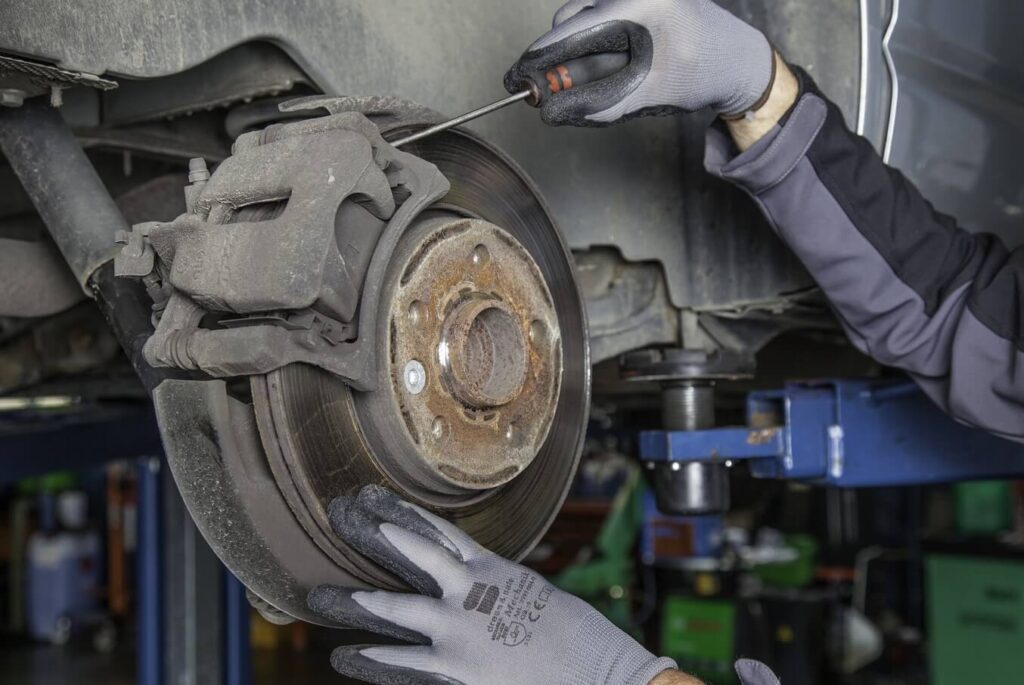
How to Stop Brakes Squeaking When in Reverse
Inspecting the brakes to solve the problem is the first and obvious. However, if you find no issues, cleaning the brakes and applying some copper slip to the pad carrier, where the ears of the pads touch, may help. Alongside smoothing any sharp edges on the pad’s surface with some emery cloth.
However, if that doesn’t work and you find a lip on the rotor, you may need to replace them and the pads to eliminate any noises. It is possible to have the surface of the brake rotor skimmed; however, when they come as new, they aren’t particularly thick, so skimming them might take them below to minimum required thickness.
Conclusion
It’s pretty common for brakes to squeak when only going in reverse; however, it is a sign of an issue with the brakes that needs attention.
Next, why not have a read of Why do my brakes squeak when I first start driving? It’s a very similar problem with comparable issues.
